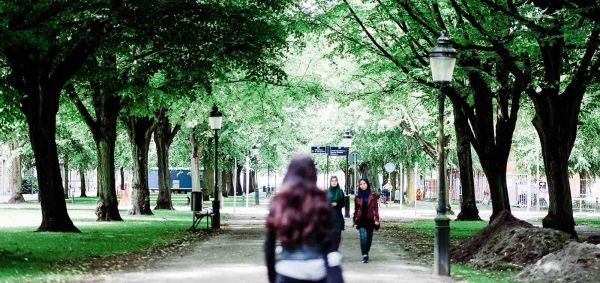Numerous scientific studies have demonstrated the benefits that green spaces have in people’s lives. In fact, various studies led by ISGlobal have found links between exposure to green spaces such as parks and forests and various health improvements, including slower physical and mental decline, decreased risk of breast cancer and, most recently, reduced risk of developing metabolic syndrome. However, very little is known about the mechanisms that mediate this positive impact.
The Barcelona Institute for Global Health (ISGlobal), a centre supported by ”la Caixa”, recently published two new studies on how natural spaces improve health and well-being. Both studies looked at four European cities: Barcelona, Spain; Stoke-on-Trent, United Kingdom; Doetinchem, Netherlands; and Kaunas, Lithuania. The studies were a part of PHENOTYPE, a project led by ISGlobal researcher Mark Nieuwenhuijsen that aims to study the interconnections between human health and exposure to outdoor environments.
In the first study, published in Environmental International, the researchers considered four parameters: amount, quality, use and experience of natural outdoor environments. “Many earlier studies focused on quantitative measures of green spaces such as the amount of vegetation and the distance from people’s homes, without taking into account the quality of the spaces or the activities that people engage in there,” commented Nieuwenhuijsen, leader of the study and coordinator of the Urban Planning, Environment and Health Initiative at ISGlobal.
Continue reading at ISGlobal
Image via ISGlobal


